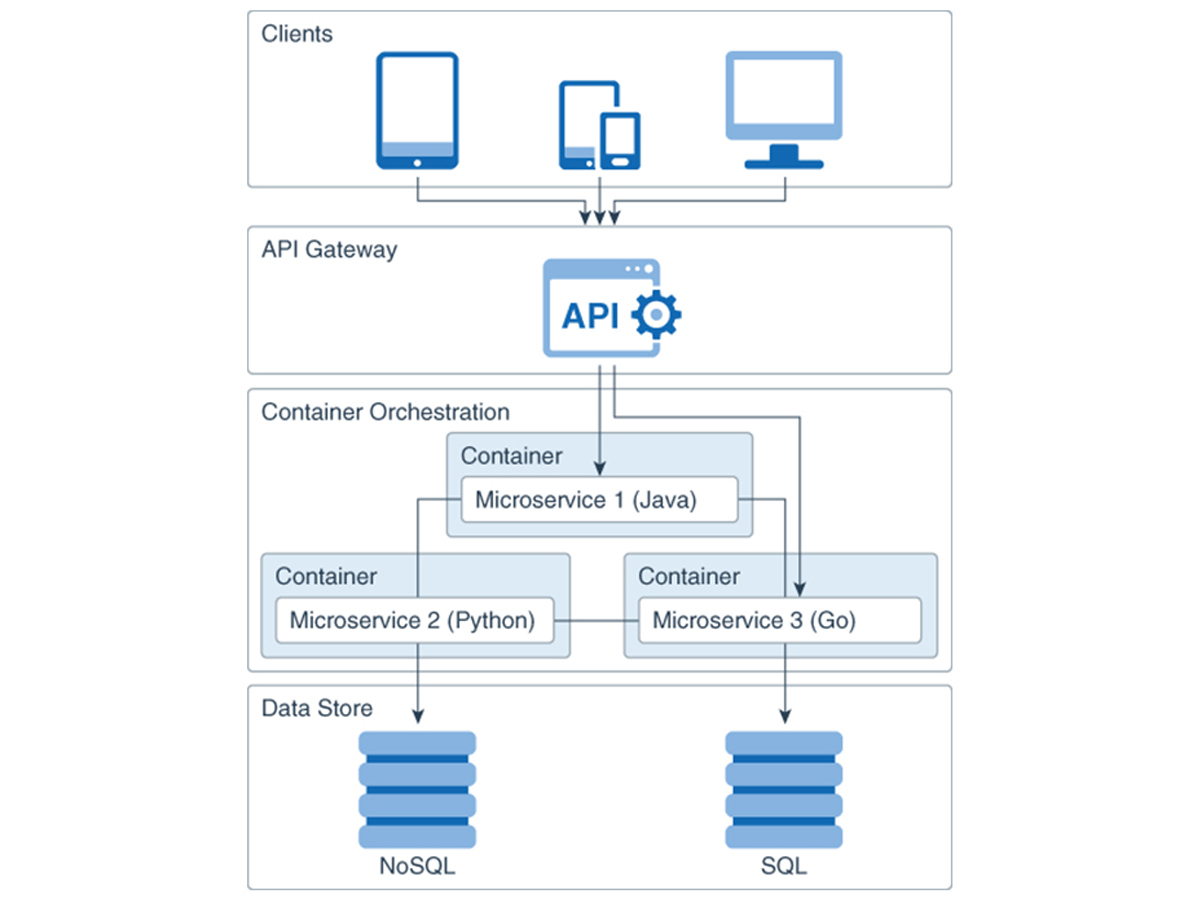Get matched with a tech stack you truly love.
At zDistanceLab, we have expertise and are getting expertise in emerging technologies.
In software development, if we need to choose a language for a project, we need to ask ourselves a few questions before we make any decisions. For example, what kind of project is it? scalability of the application, the complexity of the application, the development budget, the development time limit, the application's security, the available resources, etc.
The following are main things which we need to consider for a programming language for your project.

Small projects such as a web application form, portfolio presentation, simple marketing website, or simple personal blog can be built with some CMS systems like WordPress (which requires PHP knowledge) or Umbraco (which requires C# knowledge). For Android applications, Java or Kotlin are good; for system programming, middle-level languages such as C can be used. Python is the default choice for ML projects.

In the case of the Java language, bytecode will be generated, and in order to run it on any machine, the Java Virtual Machine must be installed. A similar thing goes with the websites. It should look and work the same across all browsers. If you’re using CSS3 and HTML5 tags, then your website may look and behave differently across different browsers.

We get the ecosystem of libraries and vendor support regardless of the technology and language we use. We need to pay attention to the maintainability of the application, and this is the reason we should always look at the latest release of the language or technology stack. Make sure that whatever we pick is current and will stay current for a long time.

The performance of your application heavily depends on the choice of the programming language. It matters a lot when the development environment doesn’t offer much scope for scaling. To squeeze out so much performance from your application, you need to choose the right programming language.

During the development of any application, you will face many issues, which can create a big problem if there is not enough community support available. While building an application, you may get stuck at any moment and have to seek the help of some resources or some other developers. This is the reason you should pay attention to this factor as well.

Language maturity is considered based on several factors. Stability over the years is one factor to be considered. The ability to release a newer version indicates maturity. A plethora of frameworks is a true indicator of language maturity.

At zDistanceLab, we help our clients build enterprise-grade applications using Java technologies. zDistanceLab offers timely development of Java applications with a sustainable architecture, clean code, and high coverage with unit tests.
Our architects work with you to design applications that are resilient to failure, have loosely coupled components that can be deployed across the network, and automatically scale with demand. We focus on how the application may be used and connected from a variety of different platforms—browsers, mobile devices, mash-ups; and how the application may interact with many external platforms, including social networks, etc.
Our Java expertise includes core Java, jsp, hibernate, spring boot, spring security, and unit testing using junit.
zDistanceLab offers the services of Python developers with 3–15 years of experience who ensure first-time-right code, on-time delivery, and high productivity. Our flexible services stretch from filling specific Python skill gaps to providing self-managed Python development teams.
At zDistanceLab, we use Python mainly for machine learning projects and serverless technologies.

zDistanceLab empowers our customers to develop enterprise-driven applications that encompass the key attributes of the business. Our expertise with Microsoft technologies enables us to develop and deploy world-class enterprise solutions. We can help you develop business-driven applications that encompass aspects like business integration, SOA, data analytics, and Web-based applications.
We provide comprehensive code documentation and carry out consistent code reviews to write code once and keep it simple, loosely coupled, balanced, and readable.
We have experience with Microsoft technologies such as.net core,.net core web api, asp.net, asp.net mvc, wcf, sql server, ssis, ssrs, and asp.net webforms.


PHP is an open-source programming language that powers 80% of the web. It is the language of the White House websites, Facebook, Slack, Wikipedia, and Flickr, and the basis for the majority of present-day web services, B2C and B2B applications, content management systems, and e-commerce solutions. Our expertise in custom WordPress development helps our clients launch new products quickly.
We have expertise in custom plugin development, theme development, payment gateway integration, etc. Our expertise includes using frameworks like Laravel and CodeIgniter.
Microservices, also known as the "microservice architecture," are an architectural style that structures an application as a collection of services that are
The microservices architecture enables the rapid, frequent, and reliable delivery of large, complex applications. It also enables an organization to evolve its technology stack. zDistanceLab has built several cloud-native applications using a microservices architecture. We build applications that are decomposed by cohesive services with functions that truly belong together. We deploy the microservices to an API Gateway that provides authentication, monitoring, caching, and intelligent request management. We ensure that the application is not only easy to build and deploy but also easy to test and maintain. We use containers such as Docker to deploy fast, manage effectively, be portable across cloud platforms, and use resources efficiently.
